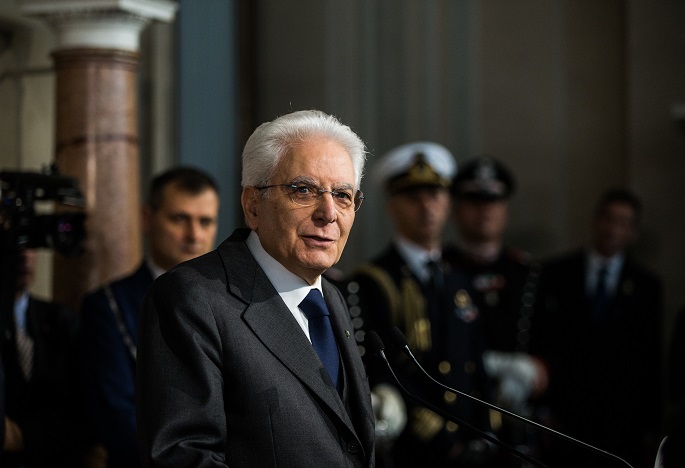Italian president warns against euro-skepticism
Published : 10 May 2018, 15:12
Italian President Sergio Mattarella warned against euro-sceptic sentiments and political trends in an address on the European Union (EU) on Thursday.
At the eighth edition of an annual conference on "The State of the Union" organized by the European University Institute on May 10-12 here, Mattarella urged public opinion and political leaders to "rediscover Europe."
"We have to avoid a Eurosceptic narrative that provides alluring yet impracticable solutions," the head of state told the audience.
"We are safer, richer, and more free today that in post-war period," said Mattarella, adding "Yet, we seem to lack determination towards contemporary challenges, and someone prefers to choose 19th-century solutions to the problems of the 2000s."
A growing number of people and political actors, he noted, seemed to be forgetting that the European civilization, as well as the continent's wealth, could not be reduce to one single country or group of countries.
"Perhaps, we are not sufficiently aware that the 'extra-Europeans' look at us and perceive us more and more like Europe, and no longer as single separate realities," he explained.
The president's remarks came while last-ditch attempts were underway to form a coalition government, over two months after inconclusive elections held in early March.
Latest talks between rightwing, anti-immigrant League and anti-establishment Five Star Movement (M5S) -- the two relative winners of the election -- may finally give way to a new government.
Both the League and the M5S -- to various degrees -- have expressed euro-sceptic sentiments, and harshly criticised some EU policies.
Formal talks among all parties brokered by the president have so far failed, and it was yet not sure the entire center-right block, with which the League run the campaign, will support a deal with the M5S.
In case of further failure, the country would most likely face snap elections.
Since its inception, the State of the Union conference draws European politicians, opinion leaders, analysts, and academics to the Tuscany city for a three-day debate on crucial EU issues.
This edition focuses on the theme of solidarity, encompassing economic, fiscal, and monetary policies, social investment, migration, climate change, and energy, organizers said.


